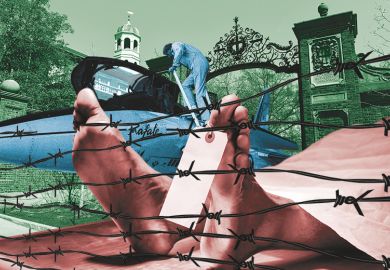The recent judgement by the European Court of Justice in the case Google Spain v. AEPD and Mario Costeja allows individuals to “de-index” content about themselves, including links to newspaper reports, if it is “inadequate, irrelevant or no longer relevant or excessive in the light of the time that had elapsed”.
The ruling has potential implications for academic research.
Speaking at a press briefing to launch the tenth Wikimania conference at London’s Barbican Centre this week, Wikipedia founder Jimmy Wales argued that “the right to create content, including controversial content, should be accepted”.
Geoff Brigham, general counsel for the Wikimedia Foundation, the US-based organisation behind Wikipedia, was worried that “history is being filled with memory holes. Demands that we erase content are a direct threat to our mission.” Not only was “the right to be forgotten… a false promise”, but it meant that “links may be silently deleted”.
“This type of self-censorship is unacceptable,” added the foundation’s chief executive, Lila Tretikov, “the lack of disclosure inexcusable”. Deleting links amounted to “removing an index to a book in a library” rather than just “correcting the information in the book”, she said.
The press conference also saw the launch of the Wikimedia Foundation’s first Transparency Report, which sets out how it responds to requests to provide user information, to take down or alter content, or to remove material said to be in copyright.
Of the 304 “requests for content alteration and takedown” during the two years to June 2014, not a single one had been granted. Examples cited included a request by a French intelligence agency to remove information about a military base that became publicly available after it had arranged a visit for local journalists, and a complaint from a photographer who claimed copyright in some images created by a macaque monkey which had stolen his camera and taken several “selfies”.
Register to continue
Why register?
- Registration is free and only takes a moment
- Once registered, you can read 3 articles a month
- Sign up for our newsletter
Subscribe
Or subscribe for unlimited access to:
- Unlimited access to news, views, insights & reviews
- Digital editions
- Digital access to THE’s university and college rankings analysis
Already registered or a current subscriber? Login




